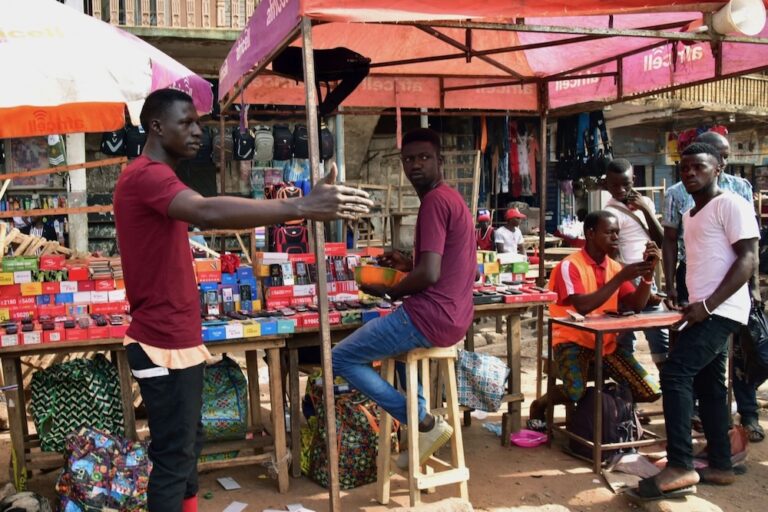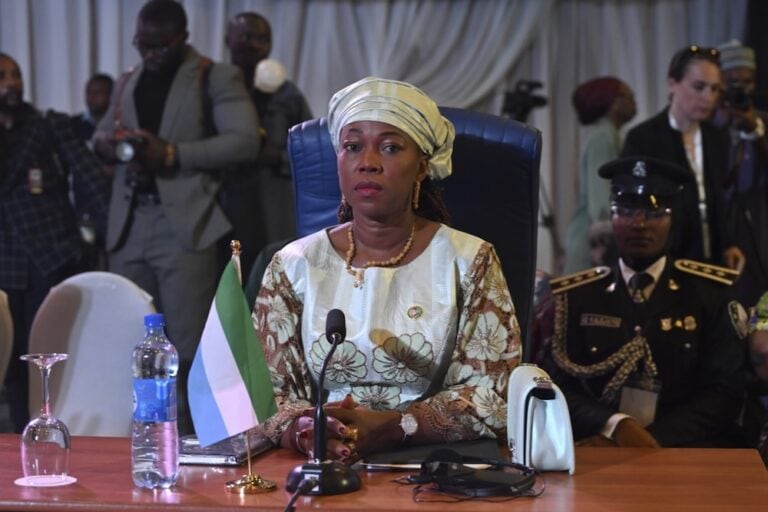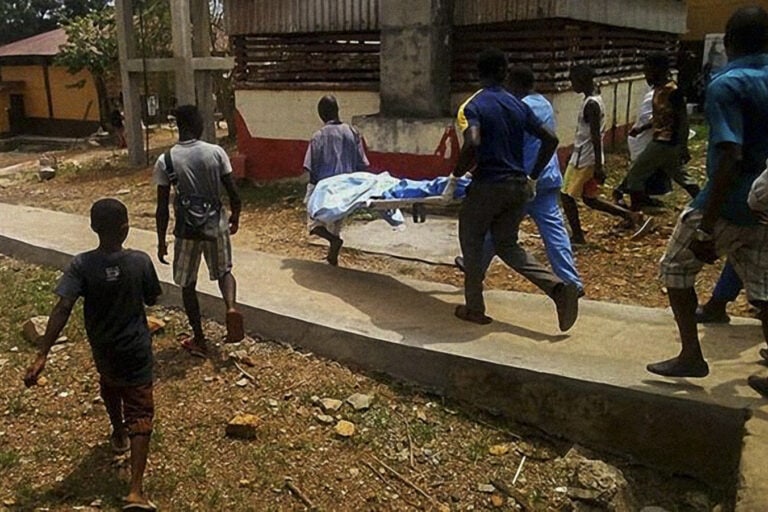(RSF/IFEX) – RSF is alarmed by a wave of threats and attacks on journalists by supporters of the two candidates in Sierra Leone’s 8 September 2007 presidential election run-off. Many cases of violence involving members of the ruling Sierra Leone People’s Party (SLPP) and the opposition All People’s Congress (APC) have been reported since late […]
(RSF/IFEX) – RSF is alarmed by a wave of threats and attacks on journalists by supporters of the two candidates in Sierra Leone’s 8 September 2007 presidential election run-off. Many cases of violence involving members of the ruling Sierra Leone People’s Party (SLPP) and the opposition All People’s Congress (APC) have been reported since late July.
“The run-up to the second round of the presidential election should be an occasion for the media to take their distance, but the divisive, partisan journalism prevailing in Sierra Leone has fuelled violence and exposes journalists on all sides to danger, especially those who refuse to conform to political party dictates,” the press freedom organisation said.
“We make a solemn appeal to all political party activists in Sierra Leone to show, on the eve of the polls, that their victory will not unleash a wave of vengeful violence,” RSF added.
There have been cases of hostility and violence towards foreign journalists resulting from claims in some pro-SLPP media that the elections are being rigged by the UN and western countries. Canadian journalist and AP stringer Rob Mackie, for example, was assaulted by SLPP activists as he filmed APC candidate Earnest Bai Koroma and Charles Francis Marghai of the People’s Movement for Democratic Change (PMDC) on 31 August in Kenema, Sierra Leone’s third largest city, located in the east of the country.
A few weeks before that, Katrina Manson, the correspondent of the British news agency Reuters, was thrown out of SLPP headquarters by angry activists when she went to interview the party’s secretary-general, Jacob Jusu Saffa.
The two radio stations that belong to the SLPP and APC have particularly helped to fuel the tension between their supporters and hostility towards the international community. The Independent Media Commission, whose job is to regulate Sierra Leone’s media, asked the two stations at the start of this week to “tone down” in the hope of restoring calm in the final run-up to the second round.
The party media themselves have not been spared in the climate of hostility and political violence. Staff members of the SLPP-owned weekly “Unity” were the target of repeated death threats from 26 August to 1 September. The SLPP’s spokesperson, Victor Reider, said the journalists received threatening and insulting SMS messages on their mobile phones from people claiming to be APC members.
The staff of the APC-owned weekly and radio station “We Yone” have been threatened in the same manner, according to Dennis Ayodele Smith, the head of the radio station. On the evening of the first round, on 11 August, the premises of “Awareness Times”, a pro-SLPP weekly that has been criticised for its inflammatory articles about the opposition and the local UN mission, were attacked by APC activists after rumours circulated in Freetown that its publisher was hiding voting urns there.
But the media most affected by the tension have been the independent newspapers, caught in the verbal crossfire between the rival presidential candidates. Several journalists are in hiding while others have gone into exile.
Olu R. Awoonor Gordon, the editor of the privately-owned “Peep! Magazine” weekly, received an anonymous call on 18 August from a mobile number promising him that he would end up as “dead meat.” Gordon had just brought a libel suit against the pro-government “Concord Times” weekly for reporting claims by two SLPP leaders that he was plotting to provoke violence.
At the same time, Tatafway Tunoe, the editor of the privately-owned “African Champion” weekly, was assaulted by the bodyguards of A.M. Kamanda, a traditional chief in the eastern city of Koidu and an SLPP supporter. Tunoe’s deputy editors, Idrissa Sillah and Mohamed Koroma, have meanwhile received many anonymous calls threatening them with death.
The streets have also become dangerous for journalists trying to cover the elections. SLPP activists used sticks to beat Ansu Moigua, a journalist with the Koidu branch of the privately-owned radio station Talking Drum Studio-Sierra Leone, on 27 August after he photographed an APC poster that had just been torn by a group of youths wearing T-shirts proclaiming their support for Vice-President Solomon Berewa, the SLPP candidate.
This was just the latest of a long list of disturbing street incidents. Freelance journalist Hashim Tejan was roughed up on a Freetown street on 6 August, two days before the first round, because the T-shirt he was wearing was red, the APC candidate’s colour.


